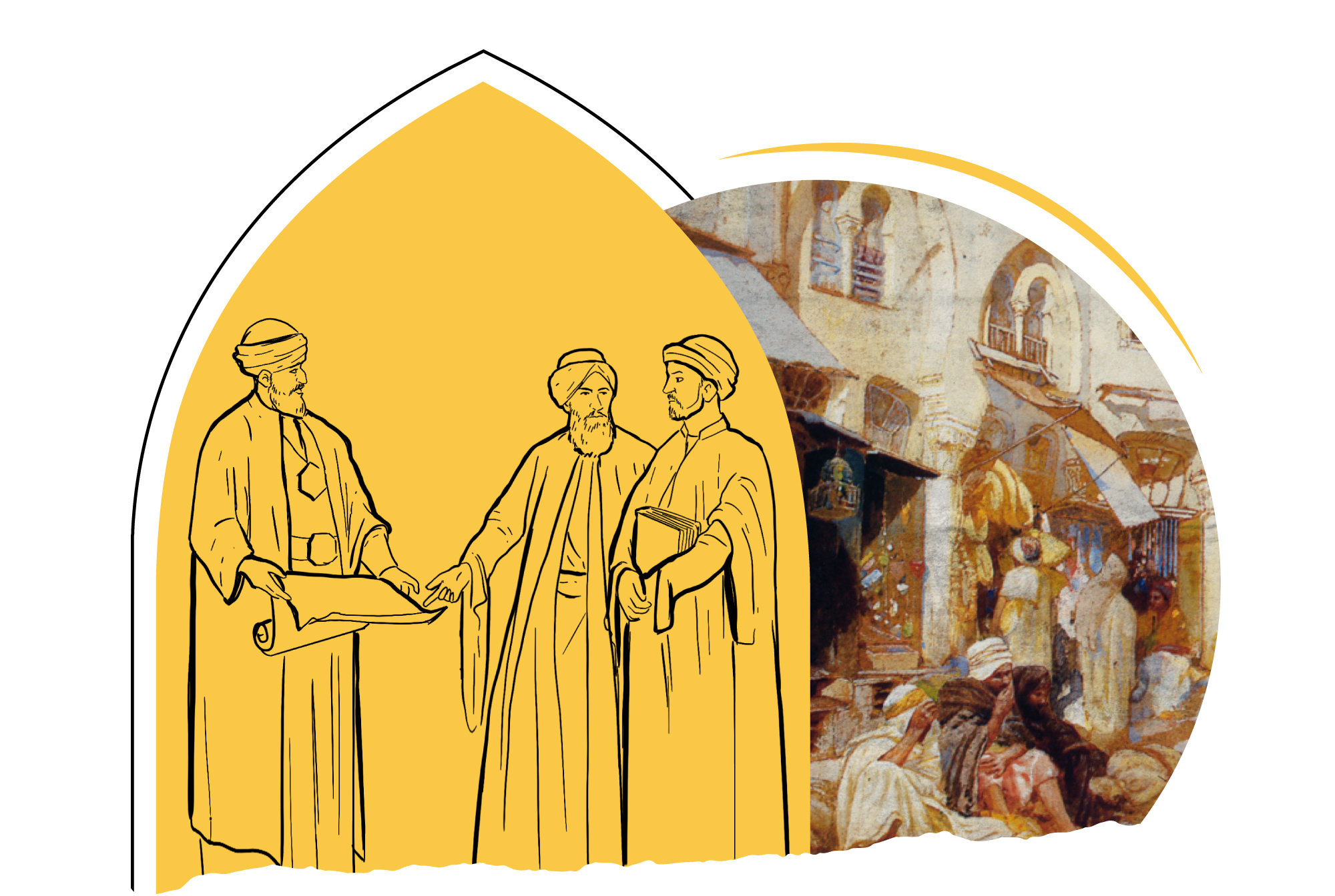
Barmakids’ Tactic to Control the Reins of the Abbasid State
They infiltrated the convictions of the caliphs and busied them with manifestations of wealth, yet with no authority or power
The case of “Baramkid Ministers” is an important political phenomenon that was not analyzed and studied sufficiently, although it inspired a group of organizations that saw in approaching men of power is one of the prerequisites for controlling the inner affairs of ruling and the political decision-making system.
The Barmakids succeeded in climbing the ladder of power and owning the forefront of the Abbasid state’s economy, which enabled them to control the joints of power without arousing the wrath of the caliphs. Perhaps Harun al-Rashid was the first to notice the necessity of cutting them off because they reached what can be considered a “point of no return”. He said about that: “The Barmakids thought that the Hashemites are their slaves and that they are the state. They believed that they are the source of all Abbasids’ blessings”.
It can be said that the Barmakids were able to hold the key positions, from the position of the Minister of the state, which was held by Yahya al-Barmaki, to the position of commander of the army, which was entrusted to al-Fadl ibn Yahya, reaching to Ja’far ibn Yahya, who assumed a group of political and military positions. This is in addition to their monopoly on agricultural lands and large estates, until they thought that they were the true owners of the state and acted on that basis.
In this context, we believe that the Barmakid disaster began when they underestimated the intelligence and cunning of Harun al-Rashid and believed that he was unable to move and maneuver without them, and that they controlled the political and military backbone of the state. This was expressed by Ja’far ibn Yahya in his response to Ismail ibn Yahya al-Hashemi, when he said: “O Ismail, I swear that your cousin has eaten bread only by my grace and this state is established only by us… and I am planning for great matters until he extends his eyes to see what I stored up and selected for my son and my successors thereafter, with Bani Hashim’s envy inside him, along with their oppression and greed. I swear, if he asked me any of this, he will be gravely misfortune”.
They underestimated Al-Rashid's cunning and political sophistication, so they dared and defied him and the Arabs.

Harun al-Rashid contributed to tightening the screws on himself and his rule when he empowered the Barmakids. He decided to keep the manifestations of power and not its essence, so he empowered and “entrusted Yahya al-Barmaki with powers and authorities, as well as his children. He threw himself into their arms politically, economically and administratively and almost removed himself from all state affairs”. On their part, the Barmakids forgot or tended to forget that the positions and influence they reached was due to their affiliation to the Abbasid state, which they ruled in its name and rose through their affiliation therewith. They forgot the fate of those who preceded them, though Abu Muslim Khorasani’s disaster was not far from them.
“The Sultan is sterile”. That is the point the Barmakids did not pay attention to despite the shrewdness of Yahya al-Barmaki, who knew that they had no authority except under the Abbasid state, otherwise the people would revolt against them. Therefore, the Barmakids saw the necessity of preserving a mimic caliph who “prevails yet does not rule”, which was not acceptable to al-Rashid, who was well versed in government and politics affairs.
If underestimating the personality of Harun al-Rashid contributed to the beginning of resenting the Barmakids, yet provoking his wife, Zubaydah, and restricting her expenses has hastened the elimination of their existence, especially as she was proud of her lineage and her affiliation to Ja’far ibn al-Mansur. As Yahya al-Barmaki rose to the highest positions of power thanks to the recommendation of al-Khazayruz, the mother of the Caliph, the beginning of the disaster was by the hands of Zubaydah, wife of al-Rashid.
In fact, Harun al-Rashid did not stand idly. He moved first to control the affairs of the palace through his minister, Ibn al-Rabee, in addition to planting spies that owed him personal loyalty. This is in addition to the movements of Zubaydah who mobilized Bani Hashem against them. These attempts succeeded in sorting out the loyalists of the state and the followers of the Barmakids. The arrogance of Yahya al-Baramaki contributed to the discontent of all those who did not benefit from the “Baramka tips”. especially among the Arabs who resented and considered them “intrusive in the affairs of the state”.
In sum, it can be said that the Barmakids dug their graves with their own hands when they believed that they were the owners of the state, controlling all its strings, which prompted Harun al-Rashid to wake up from his prolonged political coma in which he gave the Barmakids a preference that they were not worthy of. The moment came when Al-Rashid woke up to “his religion, Arabism and nation, only to find them all in danger. He then resorted to tricks until he, his family, nationality, Arabism, religion and language got rid of those evil eagles that almost killed him”.


- Ahmed Amin, Harun Al-Rashid (Cairo: Hindawi Foundation, 2014).
- Saleh Ramadan, Barmakids’ Shu’ubi Approach, Research Journal of the College of Basic Education, University of Mosul, p.4 (2010).
- Kouider Bashar, The Role of Baramkids in the History of the Abbasid State (Algeria: Institute of History, 1985 AD).
- Ali Al-Amr, Persians Political Impact in the First Abbasid Era (Cairo: Al-Degwi Press, 1979).
- Muhammad Diab Al-Atlidi, Informing the People of What Happened to the Barmakids with Bani Al-Abbas (Beirut: Dar Sader, 1990).
- Muhammad Barang, Baramkids in the Shadows of the Caliphs (Cairo: Dar Al-Maarif, n.d.)

